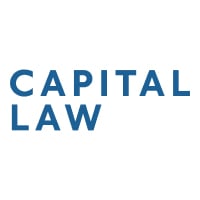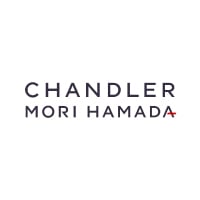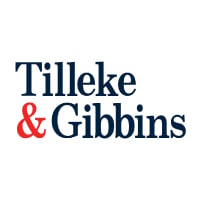

Legal director, Thailand and CLM | Johnson & Johnson Thailand






Kan Ruksasook
Legal director, Thailand and CLM | Johnson & Johnson Thailand
What are the most significant cases, projects and transactions that you and your legal team have recently been involved in?
The launch of Johnson & Johnson’s innovative robotic-assisted solution for knee replacement in Thailand is a groundbreaking advancement in knee replacement technology, as we uphold Johnson & Johnson’s unwavering commitment to quality, safety, and the enhancement of patient outcomes. This endeavour requires comprehensive legal support to navigate the complex regulatory landscape. Our dedicated legal team is actively collaborating with regulatory affairs to engage with local regulatory bodies, ensuring compliance with the standards established by the Thai Food and Drug Administration (TFDA) that govern medical devices. This process entails the preparation of thorough documentation and clinical data necessary for successful regulatory submissions, enabling us to identify and address potential hurdles early in the launch process.
A crucial element of our legal involvement is providing strategic advice regarding the business model that will underpin product’s introduction and sustainability in the Thai market. We focus on analysing market entry strategies, pricing structures, and market accessibility, ensuring that our approach aligns with both local regulations and our overarching business objectives.
In addition to business model advisory, our legal team is committed to leading the contract review and negotiation process with hospitals and healthcare providers. Key activities in this area include drafting and reviewing contracts to safeguard our interests while remaining compliant with Thai law, negotiating terms collaboratively with hospital representatives to establish mutually beneficial agreements, and conducting thorough assessments to identify potential risks associated with contracts.
A cornerstone of our legal strategy is the protection of intellectual property rights associated with the product. We perform detailed assessments to secure patents for our innovations, which safeguard our technology from infringement and fortify our competitive position in the market. By implementing a robust intellectual property strategy, we mitigate risks related to competitive challenges that may arise within the rapidly evolving healthcare technology sector.
How do you approach managing legal aspects during periods of instability or crisis to ensure the organisation’s resilience?
In periods of instability or crisis, managing the legal aspects of operations becomes critical for ensuring organisational resilience at Johnson & Johnson. Our approach is grounded in proactive risk management, which entails identifying potential legal challenges early and developing strategies to mitigate them. This involves close collaboration with cross-functional teams, including compliance, finance, operations, regulatory affairs, government affairs, ESH and corporate governance, to ensure that all legal considerations are integrated into decision-making processes. By fostering an environment of open communication and teamwork, we can effectively respond to emerging risks while maintaining compliance with applicable laws and regulations.
To navigate legal complexities during times of crisis, we have established a robust crisis management framework that includes clear protocols for legal review and escalation. This framework allows us to swiftly address legal issues that arise in dynamic situations, ensuring timely and informed responses. Regular training and simulations further enhance our preparedness, equipping our legal teams and relevant stakeholders with the skills and knowledge needed to respond effectively to various scenarios, from regulatory changes to supply chain disruptions.
Additionally, we prioritise ongoing monitoring of the legal landscape, which involves tracking legislative developments and regulatory changes that may emerge because of crisis situations. By staying informed of potential shifts in the legal environment, we are better positioned to adapt our strategies and provide timely recommendations to senior management. This proactive approach not only protects the organisation but also enables us to capitalise on opportunities that may arise during periods of instability to ensure that we remain committed to our mission of improving health outcomes for patients worldwide.
We are currently living through a time of geopolitical change, and the world order that we have come to take for granted for many years is being rewritten. Does this affect your company’s risk profile and, if so, what are you doing to mitigate this?
The current geopolitical changes significantly impact Johnson & Johnson’s risk profile, particularly concerning healthcare professionals and patients. As the global landscape evolves, factors such as trade and tariff tensions, regulatory shifts, and regional conflicts can directly affect the supply chain of medical products, access to essential healthcare services, and the overall delivery of care. These disruptions not only pose risks to our operational capabilities but also threaten the availability of critical medical supplies and treatments for healthcare providers and the patients they serve.
To mitigate these risks, Johnson & Johnson has implemented a comprehensive strategy that specifically addresses the implications for healthcare professionals and patients. We have enhanced our geopolitical risk assessment procedures, incorporating considerations of how international developments may affect the availability of our products in various regions. This proactive approach includes continuous monitoring of global events and potential regulatory changes that could impact our operations or the healthcare landscape more broadly, ensuring that we remain responsive to any disruption that may arise.
In addition to monitoring risks, we are committed to diversifying our production sites, supply chains and establishing robust partnerships with local suppliers and healthcare institutions. This strategy not only reduces our reliance on any single region but also enhances the resilience of our operations, thereby safeguarding the continuity of care for healthcare professionals and their patients. Furthermore, we are reinforcing our compliance protocols to ensure strict adherence to international regulations and trade sanctions, thereby minimising the risk of legal repercussions that could inadvertently affect the healthcare ecosystem.
In summary, as Johnson & Johnson navigates the challenges posed by an evolving geopolitical climate, our focus remains on protecting the interests of healthcare professionals and patients. By identifying and addressing risks associated with product availability, regulatory compliance, and operational resilience, we are committed to ensuring that we continue to fulfill our mission of improving health outcomes for individuals globally, even in the face of uncertainty.
What do you think are the most important attributes for modern in-house counsel to possess?
The role of in-house counsel has evolved significantly in response to the complexities of today’s corporate legal landscape. Modern in-house counsel must possess a strong legal acumen across various legal domains, including corporate law, intellectual property, and compliance regulations. This deep understanding allows them to provide strategic, informed advice that aligns with business objectives. Additionally, a practical insight into the business environment enables them to interpret legal risks in the context of the organisation’s goals, fostering decisions that promote both compliance and growth.
Effective communication and strategic thinking are also essential attributes for a successful in-house counsel. They must communicate complex legal concepts clearly to stakeholders who may lack legal expertise, as well as draft documents that are accessible and actionable. Strategic thinking empowers counsel to anticipate legal challenges proactively, integrating legal considerations into broader corporate strategies to enhance organizational success.
Furthermore, adaptability, collaboration, ethical judgment, and integrity stand as critical components of an effective in-house counsel’s skill set. The commitment to continuous learning allows them to stay current with evolving laws and regulations, while interpersonal skills facilitate collaboration across multiple departments. Upholding ethical standards reinforces the organization’s values and builds stakeholder confidence. Collectively, these attributes not only mitigate legal risks but also position in-house counsel as vital contributors to the strategic objectives of their organisations.
Legal director, MedTech and Pharm - Thailand and LCM | Johnson & Johnson
Legal director | Johnson & Johnson